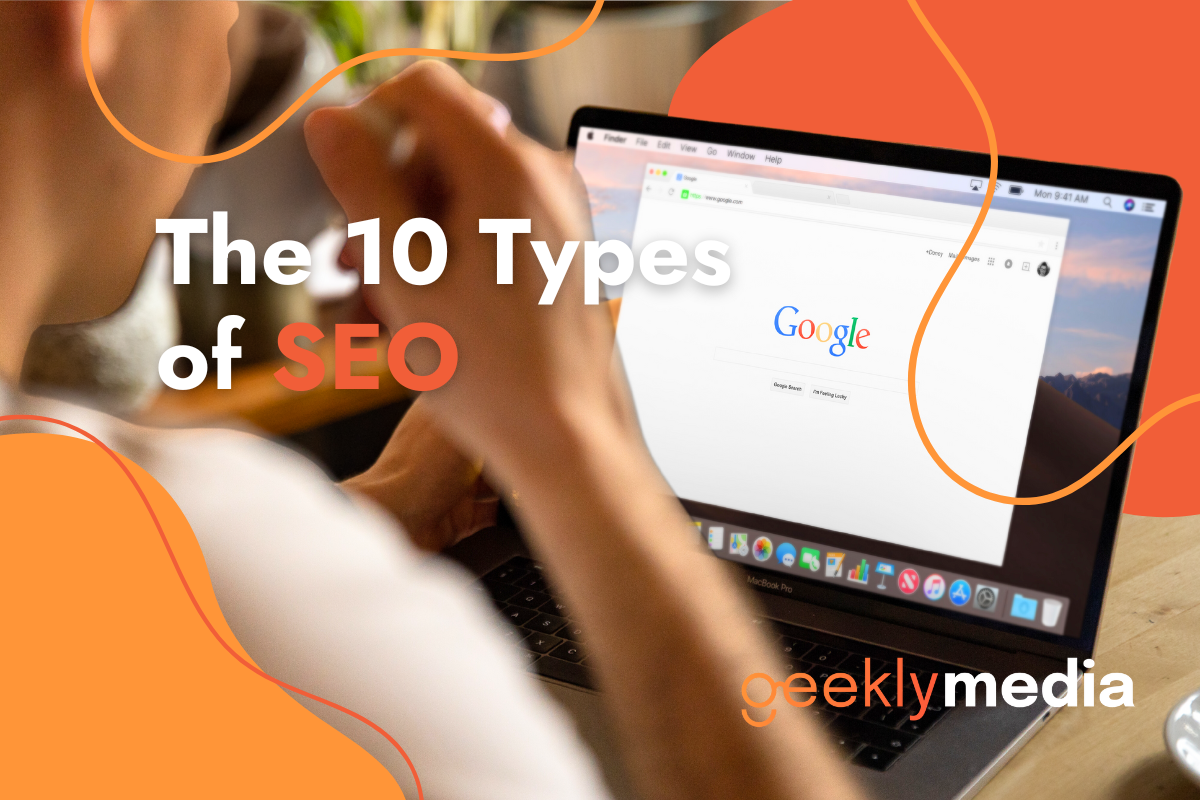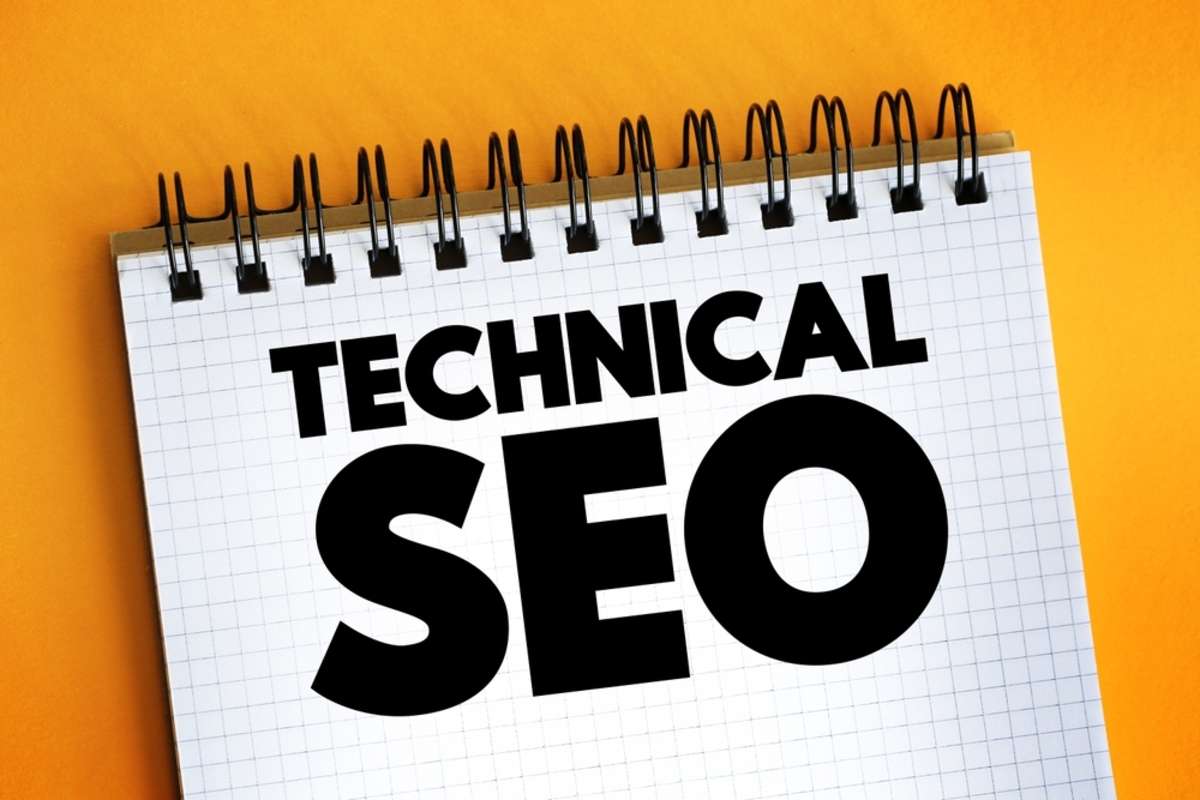
What Are the 10 Main Types of SEO?
Listen to the article
What Are the 10 Main Types of SEO?
SEO is as crucial as ever. Think about it—when was the last time you went online and didn’t rely on a search engine to find what you needed? Search engines are the starting point for almost everything we do online, making SEO an essential tool for any business looking to succeed.
Knowing the different categories of SEO can help optimize your website for a superior user experience and greater visibility in search engines. It can also help you fine-tune your SEO strategy and address areas of improvement.
This blog will explore the ten types of SEO, how they can improve rankings, and introduce a leading marketing agency ready to take charge of your SEO performance to help you generate more leads. With the right approach, you can generate more traffic, leads, and results for your business.
What Are the Different Types of SEO?
Searching engine optimization (SEO) is more than a one-off approach to helping search engines find your content. To fully understand SEO and how to apply it to your website, look into the ten types.
The ten types of SEO work together like pieces of a puzzle to improve your website's rankings.
1. On-page SEO
On-page SEO refers to optimizing the pages on your website to rank higher in search engines.
On-page SEO focuses on content, but Google’s algorithm ranks pages based on several factors, not just one.
Some factors to consider in on-page SEO include:
-
Use of keywords (after relevant keyword research)
-
User intent and satisfying the user needs in the piece
-
The creation and optimization of HTML titles and meta descriptions
-
Length of the content
-
Titles
-
Subheadings
-
Internal and external linking
-
Scannability and readability of the content
-
How helpful the content is
-
SEO-optimized images
-
Maintaining a steady stream of content
Remember that on-page SEO is not about keyword stuffing or using as many relevant keywords as you can in one block of text. Instead, it's about creating the best content possible while considering the above SEO tactics.
2. Off-Page SEO
Off-page SEO focuses on activities outside your website that build authority and credibility, ultimately boosting your website's rankings.
This includes creating content for other sites that link back to your page, building high-quality backlinks, and promoting your business on platforms like social media. Strong engagement on social media, influencer collaborations, and online reputation management are also key components. Your outreach and social media optimization must be spot-on to succeed.
Effective off-page SEO is achieved through strategies like guest blogging, securing backlinks from authoritative websites, and fostering collaborations that enhance your online presence. Anything that generates positive buzz and increases your brand's visibility online is considered quality off-page SEO.
When crafting a backlink strategy, focus on gaining links from reputable, authoritative sources. Avoid buying backlinks, as this is frowned upon by Google and can result in penalties. Instead, invest in building a sustainable, high-quality off-page SEO strategy that enhances your website's credibility and rankings.
Check out more about inbound marketing strategies for your company!
 3. Technical SEO
3. Technical SEO
Technical SEO refers to the 'backend' factors of your website that impact its performance and ensure it meets search engines' requirements for crawling and indexing.
Search engines prioritize technically sound pages since these pages offer a better user experience (UX). Key factors like site speed and mobile-friendliness play a significant role in determining how well your website performs.
Technical SEO focuses on improving aspects that affect ease of navigation and overall usability. These improvements often require advanced SEO techniques or a comprehensive SEO audit to identify and fix potential issues.
Some of these considerations include the following:
-
Speed of your website
-
Structure of the coding
-
Up-to-date links with no broken links
-
Secure connection—make sure you're using an SSL
- Proper XML sitemap
-
No duplicate content
-
Mobile-friendliness
Building procedures and maintaining a consistent SEO auditing schedule will help ensure your technical SEO is up to date.
4. Local SEO
Local SEO is essential for brick-and-mortar business owners or local independent workers such as tradespeople who rely on in-person customers to maintain their businesses. Local businesses should optimize their local SEO to improve visibility in community searches.
Best practices for local SEO performance include:
-
Creating a fully optimized Google My Business account (GMB)
-
Regular posting on GMB
-
Using local keywords (e.g., “SEO agency in Chicago”)
-
Responding to reviews, positive and negative, on GMB
-
Adding images to your listing on GMB
-
Uploading your business to online directories with high traffic, such as Yelp
-
PR (public relations) and outreach to local web pages such as local papers
-
Geo-targeted content
Local SEO practices should be considered an add-on to the general SEO practices outlined above.

5. E-commerce SEO
E-commerce SEO focuses on optimizing online stores to improve the visibility of product pages and categories in search engine results. E-commerce businesses should create a seamless shopping experience while ensuring search engines can easily find and rank your products.
Key practices include:
- Optimizing product descriptions and images to make them clear, engaging, and search-friendly
- User-friendly navigation and filters
- Schema markup for product reviews, prices, and availability
- Removing duplicate content across product pages is another important aspect
By refining these elements, e-commerce SEO drives traffic and leads to better conversions or higher sales.
6. Content SEO
Content SEO focuses on creating and optimizing high-quality content to improve search engine rankings and effectively engage users. Strong content is key to a successful SEO strategy because it attracts visitors and answers their questions.
Key practices include developing blog posts, articles, and landing pages that provide valuable information to a target audience. Keyword research ensures your content is relevant and discoverable. Long-form content that thoroughly answers user queries often performs better in search results because it demonstrates authority and expertise.
Optimizing video and visual content is also essential for improving user experience and enhancing engagement.
With these guidelines, content SEO can drive organic traffic, keep visitors on your site longer, and encourage them to take action.
7. Mobile SEO
Mobile SEO keeps your website performing seamlessly on mobile devices, providing a positive experience for users on the go. With mobile traffic dominating online usage, optimizing for mobile is essential for maintaining strong search engine rankings and engaging your audience.
Key practices include:
- Responsive web design to ensure your site adjusts to different screen sizes and devices.
- Accelerated Mobile Pages (AMP)
- Prepare for mobile-first indexing (This makes sure search engines prioritize your mobile site’s performance when ranking content).
Focusing on mobile SEO helps you meet user expectations, improve accessibility, and stay competitive in a mobile-driven world.
8. Voice Search SEO
Voice Search SEO focuses on optimizing your content to match how people interact with smart assistants and voice-enabled devices. Aligning your strategy with conversational queries can significantly improve your website's visibility.
Key practices include using natural language and long-tail keywords that mirror how users speak. Adding FAQ sections is important because they address common conversational questions used in voice searches.
Optimizing for local voice searches, such as “near me” queries, also helps your business connect with nearby customers looking for immediate solutions.
By prioritizing voice search optimization, you can stay ahead of evolving search trends and make your content more accessible to a growing audience.
9. International SEO
International SEO includes enhancing websites to reach global audiences across different languages and regions. International SEO helps businesses make their content relevant and accessible to users around the world.
Key practices include using hreflang tags to specify language targeting. This helps search engines display the correct version of your website to users in different regions. Country-specific domain extensions, such as .uk or .de, signal relevance to specific locations.
Translating and localizing your content also ensures it resonates with diverse audiences and aligns with their cultural preferences.
10. Enterprise SEO
Enterprise SEO is designed for large-scale websites with hundreds or even thousands of pages. It helps websites stay visible in search engines while managing their complex structure effectively.
Key practices include:
- Scalable on-page optimization to handle a high volume of pages
- Automating SEO tasks, such as metadata updates and technical fixes
- Advanced analytics and reporting
Large organizations can manage their extensive web presence while driving traffic and achieving their marketing goals by implementing enterprise SEO best practices.
Why Focus on The Ten SEO Types?
If one part of your website’s SEO needs attention, it’s important not to overlook the rest. Since the different types of SEO are interconnected, a strong strategy treats each type as a crucial part of a larger system working together.
For example, poor traffic and a high bounce rate could indicate that your off-page SEO isn’t driving enough visitors to your site, or that those who do visit aren’t satisfied with your on-page content.
Some ways to determine areas for improvement include:
-
Technical audit
-
Competitor analysis (such as examining keywords and density)
-
Keyword analysis
A holistic approach to your SEO health will ensure better performance, higher rankings in search results, and greater synergy within the various moving parts.

Boost Your SEO Performance With Advanced SEO Techniques
What we've covered above is a brief introduction to the world of SEO and some of our best SEO tips. If you want more traffic to your pages to convert to dedicated customers, you need the best SEO performance. Therefore, many small businesses find that advanced SEO performance requires advanced SEO partners!
Find out more about Geekly Media SEO Services Here.
Geekly Media has SEO experts ready to take charge of your website performance and optimize your page for more organic traffic. Reach out and Speak to a Geek to learn how we can help!




-1.png)
